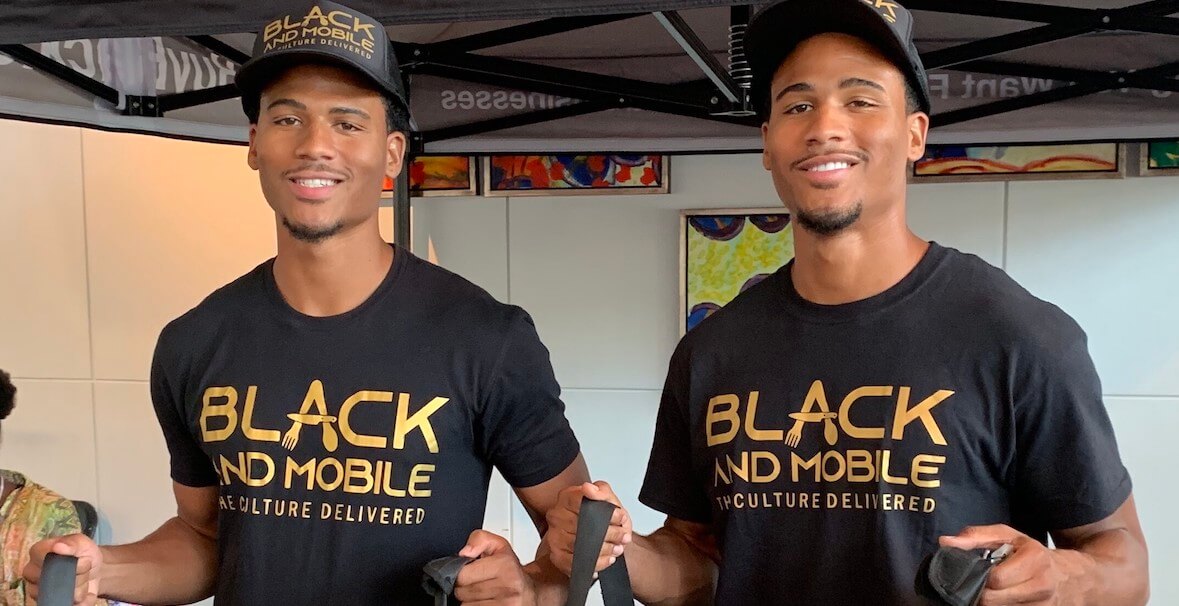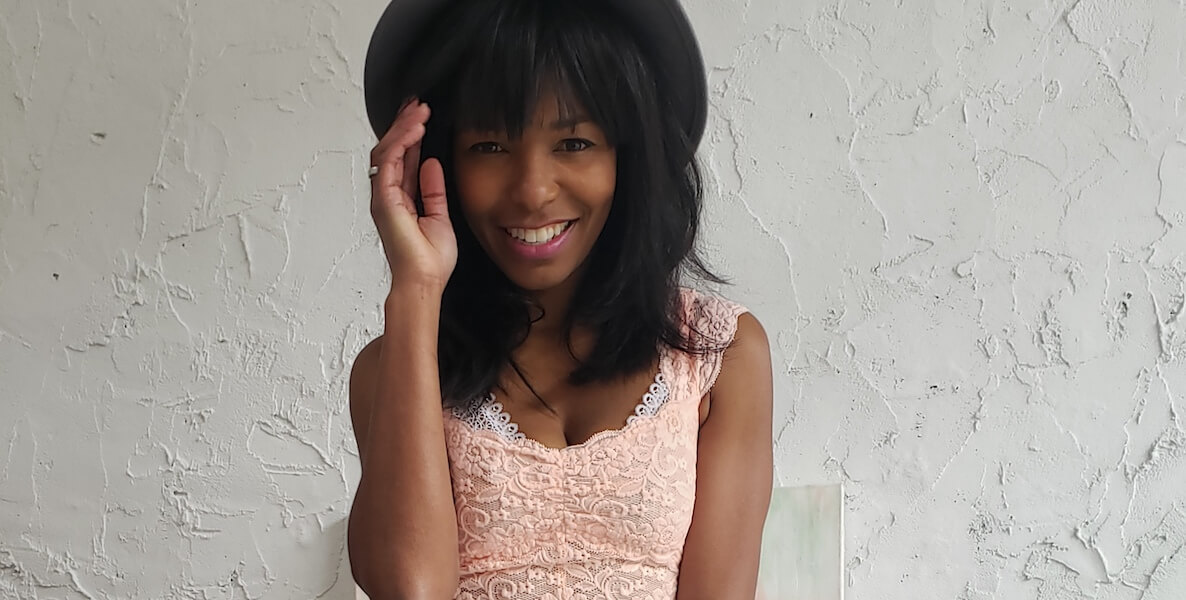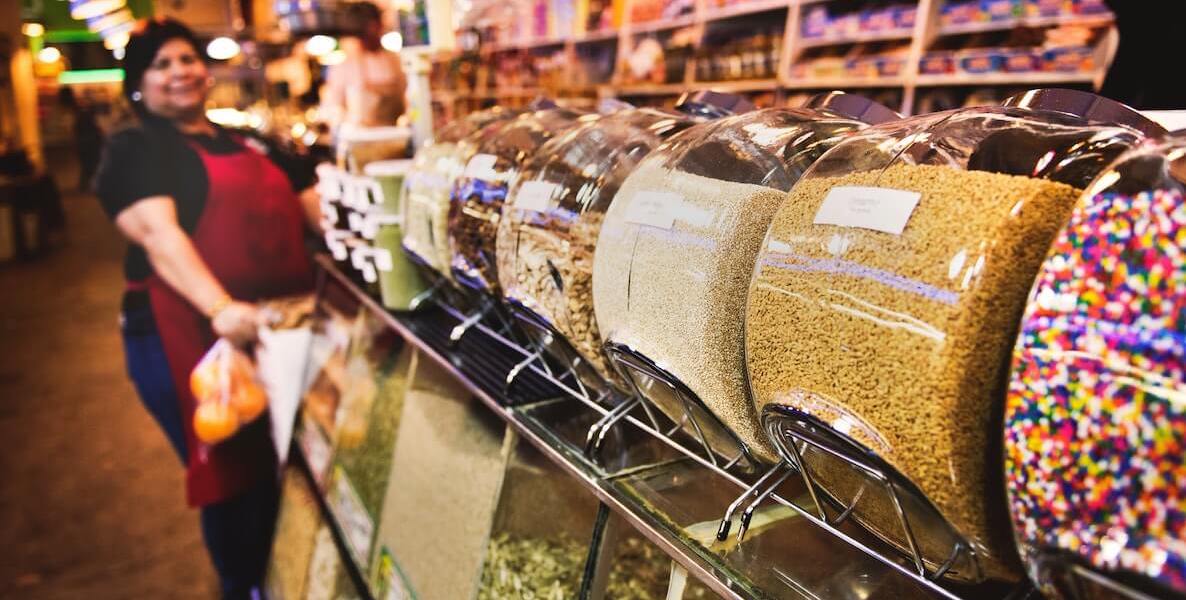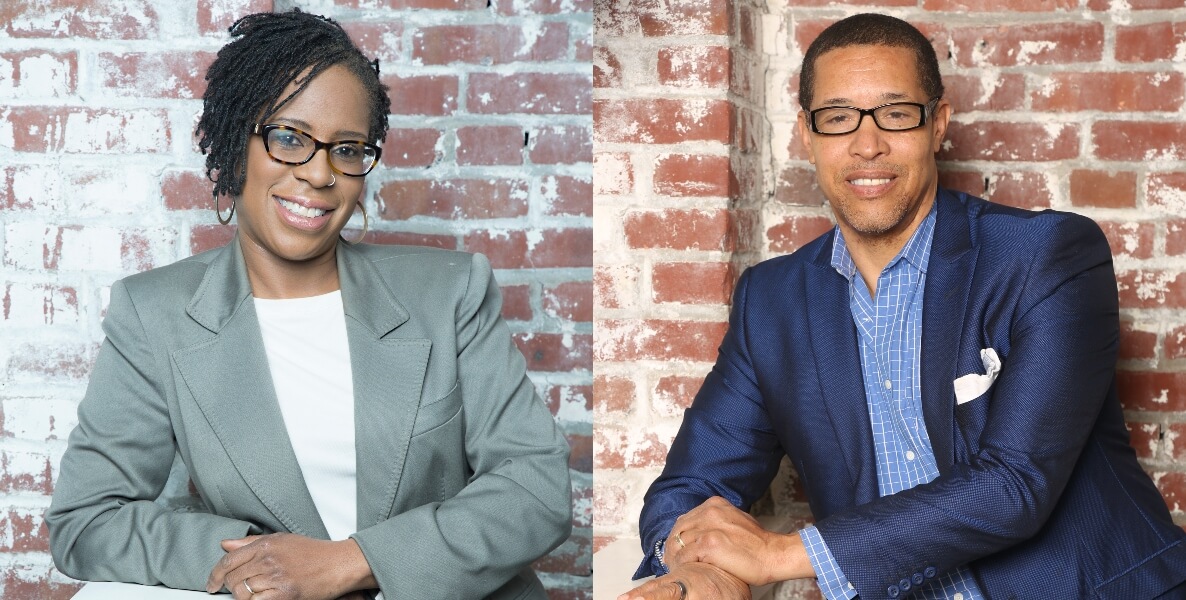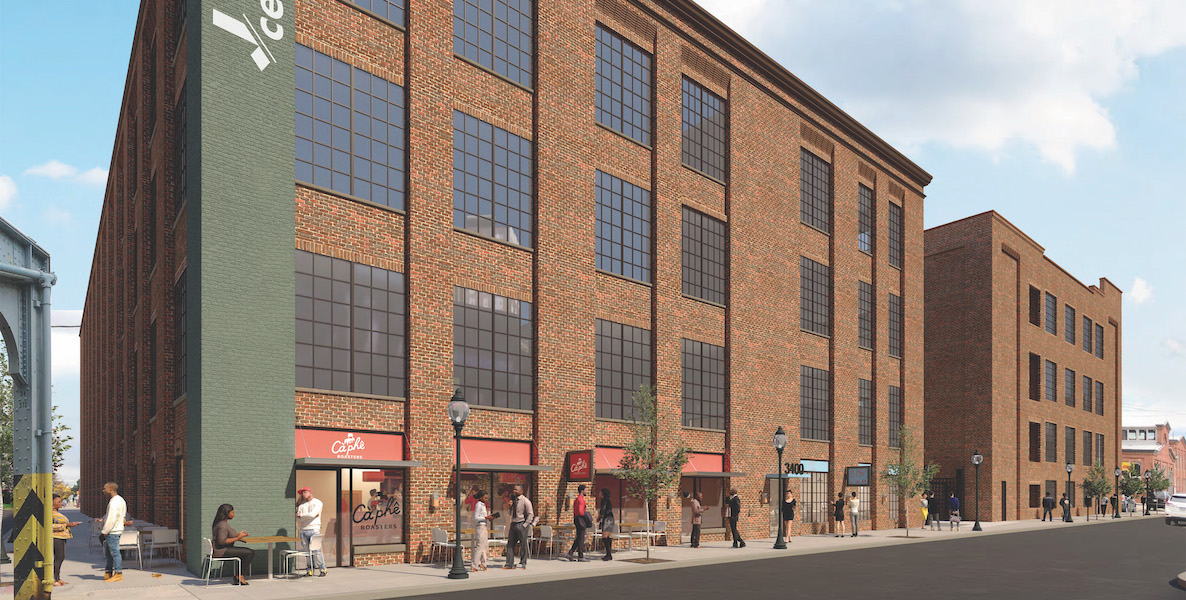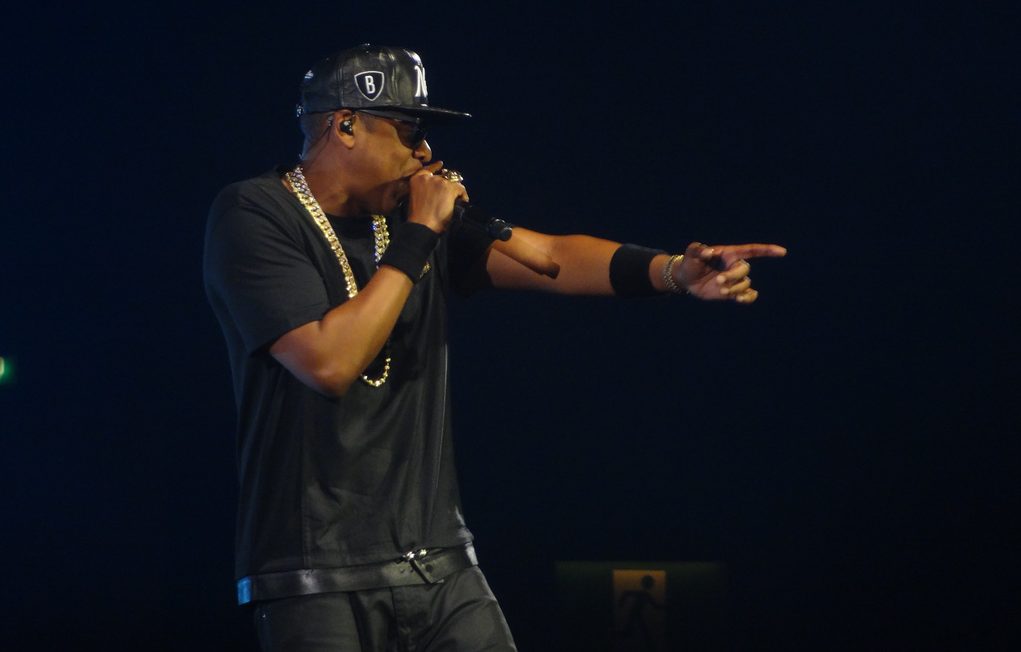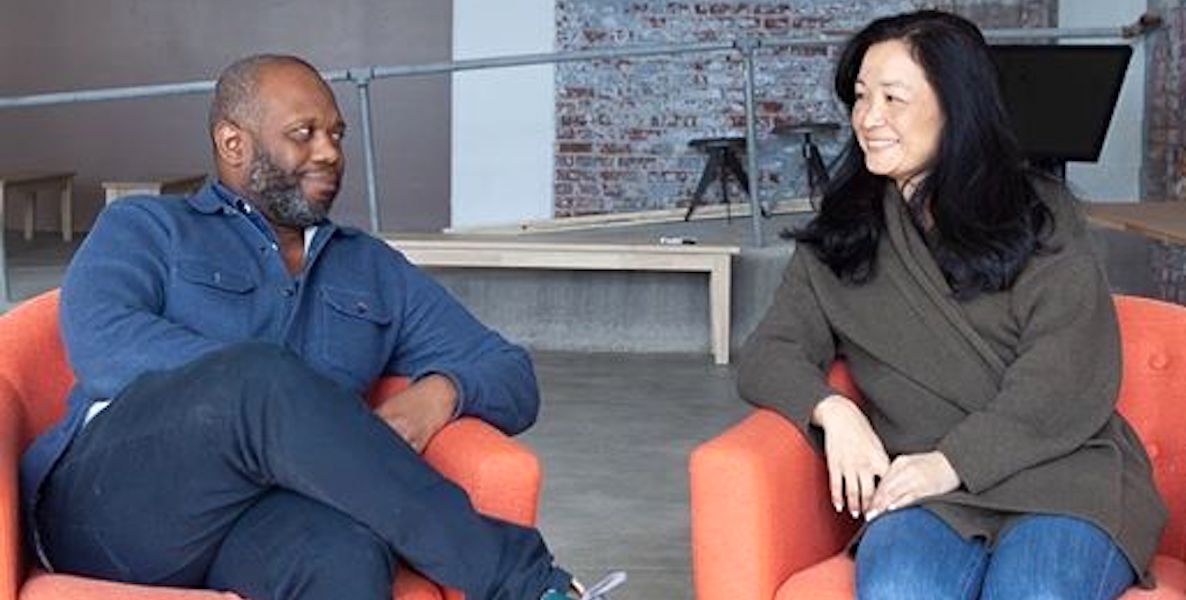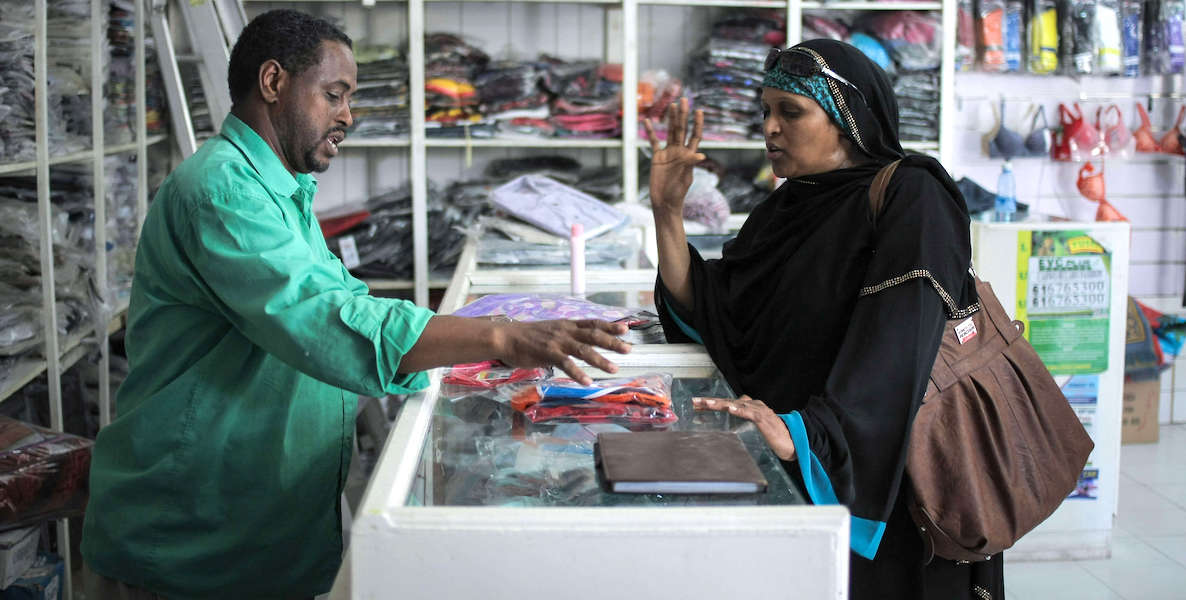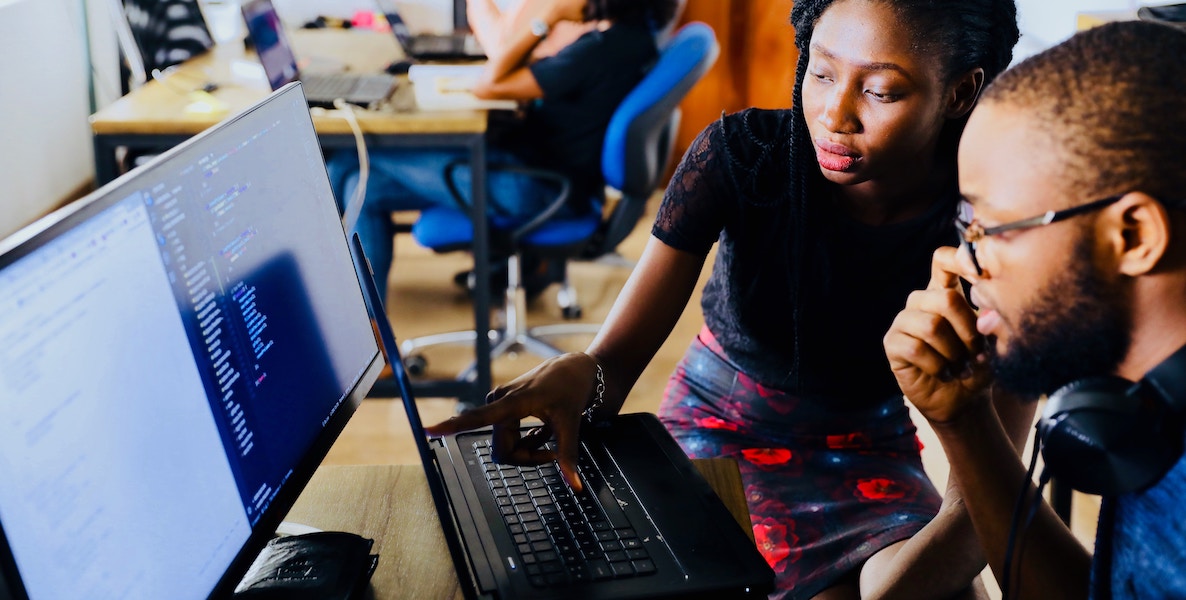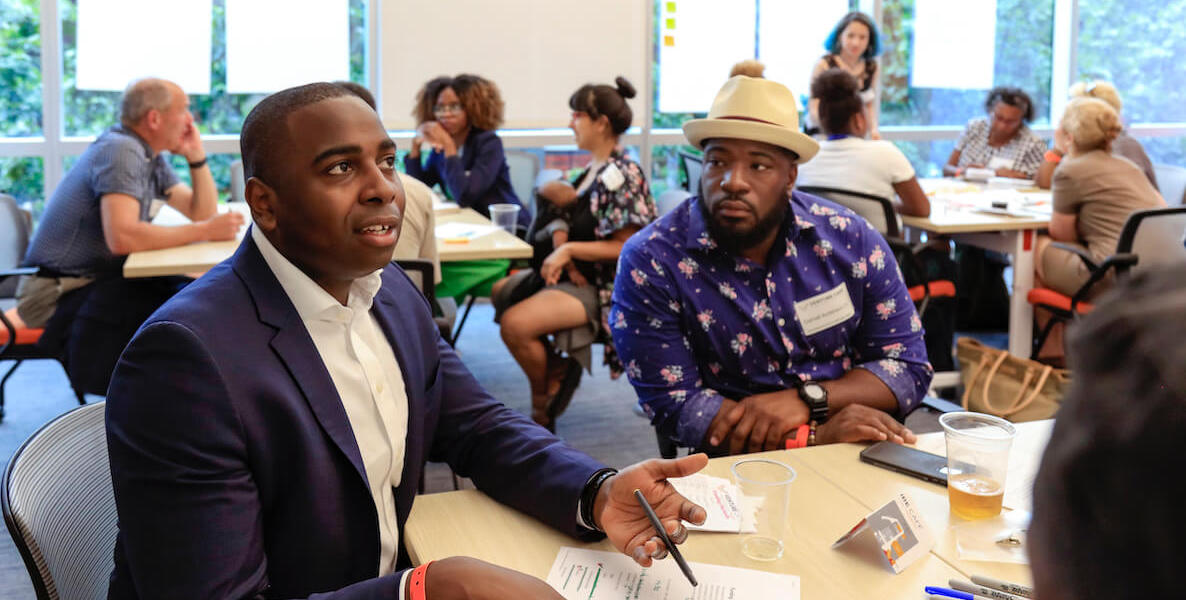Back in 2016, when Meegan Denenberg and Tayyib Smith were launching their Knight Foundation-funded Institute of Hip Hop Entrepreneurship, they asked their 300 applicants to describe the sort of business they hoped to launch after the training.
And they noticed something consistent among the people of color seeking a spot in the program: “The majority of the concepts, within all different industries, seemed to revolve around creating a ‘safe space,’” for people in their respective communities, says Denenberg, co-founder with Smith of creative agency Little Giant Creative.
Once they had their cohort of 24 students, in an ad hoc classroom at their Center City Pipeline co-working space, they heard the same thing: We really wish there was a place that provided a consistency to the kind of support and training that you’re providing, where we could come over and over again to connect and learn with people like us.
Denenberg and Smith have now answered that call with IF Lab—which Denenberg says stands for both Idea Factory, and all the possibilities inherent in “if”—the newest project from the incredibly prolific duo behind Little Giant; its nonprofit arm, Creative Cities; and (with Jacob Roller) the development firm Smith & Roller.
![]() Housed in a 3,300 square foot space in the Smith & Roller/Shift Capital J-Centrel building in Harrowgate, the Lab will be an entrepreneurship hub, incubator, co-working and networking space designed by and for business and would-be business owners of color.
Housed in a 3,300 square foot space in the Smith & Roller/Shift Capital J-Centrel building in Harrowgate, the Lab will be an entrepreneurship hub, incubator, co-working and networking space designed by and for business and would-be business owners of color.
Slated to open physically in November (if all goes according to plan), it will offer both set programming and a place for people to walk in and access a lounge, technology, desks and free legal and financial clinics, offered pro bono by lawyers and accountants. And, for entrepreneurs ready to launch, it will have some small retail spaces where they can pilot their idea.
The Kensington IF Lab itself is a pilot—originally, Denenberg says, she was hoping for a 10,000- to 20,000-square-foot space—and already, they are looking to open another in the 52nd Street Corridor in West Philly. That space will be part of a larger planned mixed-use building that is a partnership between Smith & Roller and longtime West Philly landlord Constellar Corporation.
The problem If Lab is seeking to solve is clear and immense: Pre-pandemic, in a city that is 42-percent Black, only 6 percent of businesses are owned by African Americans; that drops to 2.5 percent when looking at businesses that employ more than just the owner.
Now those businesses—like so many across the country—are struggling to stay open. A recent study by the New York Fed found that 41 percent of Black-owned companies nationwide closed for good between February and April—more than twice the number of white-owned companies. And with no end in sight to the coronavirus, those closures are likely to continue, hitting neighborhoods like Kensington, West Philly and other commercial corridors hardest.
Meanwhile, Covid-19 business relief lifelines, like the federal Payroll Protection Plan, have overwhelmingly disadvantaged Black-owned businesses. As Drexel’s Bruce Katz has written here, fewer Black business owners applied for a PPP loan, and they were approved at a lower-than-average rate. This is par for the course: Black businesses have a harder time accessing capital, whether from banks, investors or social networks. That needs to change in order to grow wealth in families, communities and neighborhoods.
“People who are more resourced might have a mentor, or a friend of the family who has a business that gave them an entry. As Black and brown entrepreneurs, we need to make those relationships ourselves,” Smith says.
“Even understanding how to access banks, and the coded language and the scary jargon is something people don’t have,” Denenberg says. “We want to address that, to provide a space for people to have a conversation about capital, and to leverage those into sustainable lives.”
IF Lab in the spring launched a virtual event series, “In The Lab,” hosting authors and thinkers such as writer and Brookings Institution fellow Andre Perry; youth financial literacy coach Chris Banks; and, next month, Antonio Johnson, whose book You Next: Reflections in Black Barbershops delves into the meaning of barbershops to Black men—what he calls “sanctuaries in a hostile land.”
Even before the physical space has opened, IF Lab has also begun working with entrepreneurs of color through “technical assistance” funding from the City’s Commerce Department, sometimes under their Little Giant Creative umbrella. Sherimane Johnson of Night Owl Vegan, for example, met Denenberg and Smith through Shift Capital after several failed attempts to open a retail store on Kensington Avenue.
Johnson says she met weekly with the team from Little Giant Creative for help with marketing and branding of her businesses, which also includes Naturally Sweet Desserts. Johnson worked as a corporate IT manager for 25 years, often as the only person of color in the room; she has always understood the challenges for people like her in business.
It was something many entrepreneurs might take for granted that stood out to her in her dealing with IF Lab: They listened to what her business was about, not just what she did.
![]() “The folks doing this work are usually not people of color,” Johnson says. “We’re concerned about what to say; we don’t want to feel stupid, or feel like we need to speak with a certain lingo. Being able to speak to someone in your own language, without being judged, and seeing work that speaks to what you’re saying—not what they think you should have—is so important.”
“The folks doing this work are usually not people of color,” Johnson says. “We’re concerned about what to say; we don’t want to feel stupid, or feel like we need to speak with a certain lingo. Being able to speak to someone in your own language, without being judged, and seeing work that speaks to what you’re saying—not what they think you should have—is so important.”
As an example of the type of work IF Lab hopes to foster, Denenberg also mentions Gather Food Hall, a solution to two separate problems: Food insecurity among college students and the barriers to starting a restaurant, especially for people of color.
Gather, designed in partnership with Sara Goldrick-Rab’s Hope Center at Temple University and Believe in Students, will be a centrally located food hall offering $5 to $10 meals for students, served by chefs using the space to test out a brick-and-mortar location for their restaurant.
As part of Gather, IF Lab will hook chef-owners up with mentors in the restaurant industry, hold virtual (for now) community dinners and allow students to donate meals or access free meals as needed. Originally slated to open in April, the pilot is now scheduled for October.
Little Giant Creative is one of the partners helping to develop J-Centrel, a mixed-use building with offices, studios and retail space, along with apartments that come at a discount if tenants agree to do community service in Kensington. That, Denenberg says, has given IF Lab access to funders, and has helped keep costs down; rent, for example, will be deferred until the Lab is sustainable.
The Lab will be funded through a variety of sources: memberships and co-working spaces for individuals and businesses; rent on its retail spaces; office or event space rentals to other organizations doing work in the neighborhood; and government grants, philanthropy and other funds.
Already, there are several other organizations and programs in Philly that aim to help minority entrepreneurs grow their businesses, from University City’s 30-year-old Enterprise Center that offers business development training, certifications, neighborhood revival programs and access to loans, grants and investments, to (on a much smaller scale), Judy Wicks’s Circle of Aunts and Uncles, which provides loans and mentorship to underrepresented entrepreneurs.
As Denenberg says, “The more organizations trying to be part of the solution, the more powerful we can be.”
Part of what they are trying to do differently here, besides tapping into Denenberg and Smith’s experience as self-made entrepreneurs themselves, is providing a familiarity that is missing from those spaces near universities, or in Center City—areas that are not just physically hard to get to, but also psychologically.
We’re trying to foster solutions and pathways, but also to really understand the history,” says Denenberg. “You can’t move forward without truly understanding how we got to where we are. Otherwise, it’s meaningless optimism that only gets you six months later, but not 20 years later.”
“A lot of these hubs don’t have the lived experiences of the people we’re talking about, as entrepreneurs of color,” Denenberg says. “Meeting people where they are resonates with us on every level. We’re opening up in people’s backyards. We also bring years and years of struggling in this world.”
![]() Denenberg and Smith, both Philly natives, know of what they speak. Denenberg, who had a background in guerrilla marketing, returned to the city to run Philly Car Share before launching Little Giant with Smith. She is now also deeply involved in “architecting” a multitude of projects for Creative Cities, including IF Lab and Women-Designed Cities. She calls herself an “eternal optimist;” Smith, she says, is the exact opposite.
Denenberg and Smith, both Philly natives, know of what they speak. Denenberg, who had a background in guerrilla marketing, returned to the city to run Philly Car Share before launching Little Giant with Smith. She is now also deeply involved in “architecting” a multitude of projects for Creative Cities, including IF Lab and Women-Designed Cities. She calls herself an “eternal optimist;” Smith, she says, is the exact opposite.
Smith went from getting a GED to spending 15 years in the music industry producing shows for the likes of the Roots and being a partner in three companies. He has seen, over and again, the inherent disparity between Black and white entrepreneurs—not just access to capital, but also to social capital.
“People who are more resourced might have a mentor, or a friend of the family who has a business that gave them an entry. As Black and brown entrepreneurs, we need to make those relationships ourselves,” Smith says. “I have to hold my justified rage in rooms with upper middle class wealthy white people on a consistent basis who possess a pathology about Black and brown people. I’ll be frank: They couldn’t last five minutes in the neighborhoods I come from.”
In the height of protests in June over the murder of George Floyd and America’s history of structural racism, Smith says his phone was ringing from 7am to 11pm with “white people crisis calls”—from friends and acquaintances who suddenly had their eyes open to what he has been talking about, and experiencing, for years.
He mentions Little Giant’s “A Dream Deferred” project in 2018, as an example. A multimedia dive into the practice of redlining and the lingering effects on neighborhoods of color, it included an art exhibit, live panels and history lessons to elucidate present-day structures that work to maintain poverty and its associated ills in Black neighborhoods.
Now, these ideas and others like them are part of our national conversation, but Smith is not holding his breath for change to come from anyone else.
As Denenberg says, “The more organizations trying to be part of the solution, the more powerful we can be.”
“These are life and death issues,” Smith says. ‘The City of Philadelphia is a thinly-veneered apartheid town. It does not stop, is not stopping. White people want to make the feeling of discomfort go away. But if we go back to normality, Black and brown people are still struggling, regardless of how kumbaya motherfuckers want to feel about their white fragility.”
IF Lab is, in part, Smith and Denenberg’s answer to this, a way of working to change communities from the inside, by fostering the entrepreneurship that already exists in Kensington, and 52nd Street, by giving creators the opportunity to create. The pandemic has made that all the more urgent.
“This could be an amazing opportunity to recalibrate how we’re doing things, and learn from others about different ways to survive,” Dennenberg says. “We’re trying to foster solutions and pathways, yes—but also to really understand the history. You can’t move forward without truly understanding how we got to where we are. Otherwise, it’s meaningless optimism that only gets you six months later, but not 20 years later.”
Header photo shows Tayyib Smith and Meegan Denenberg at IF Lab


